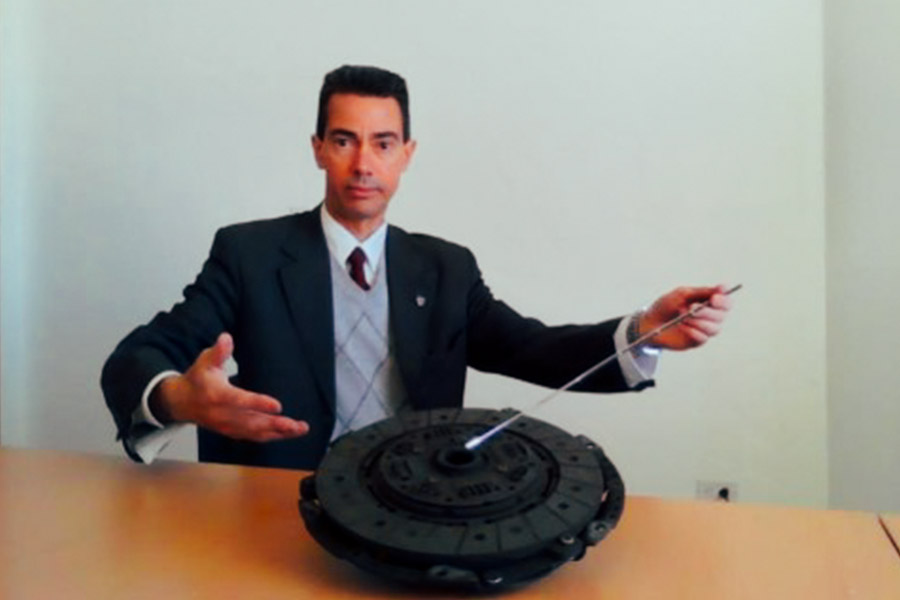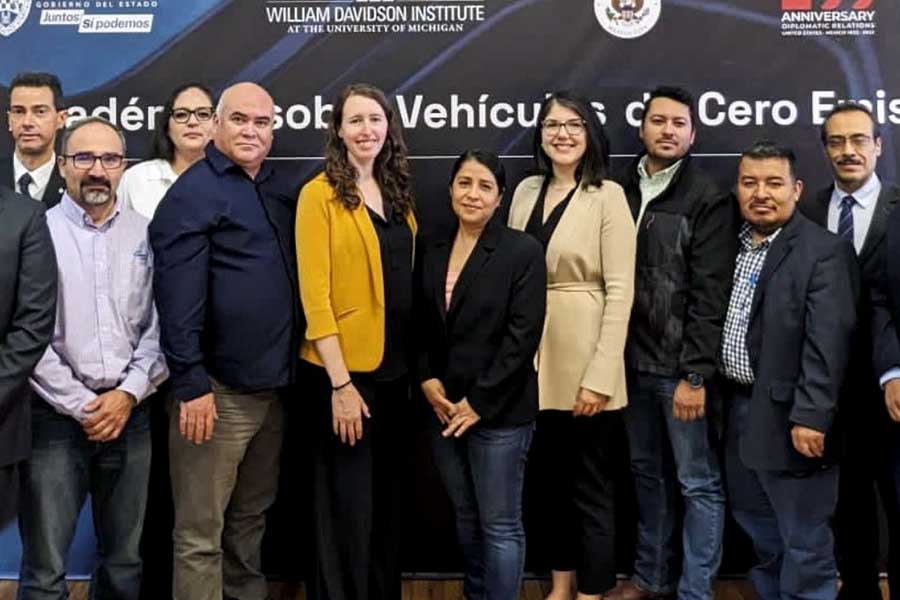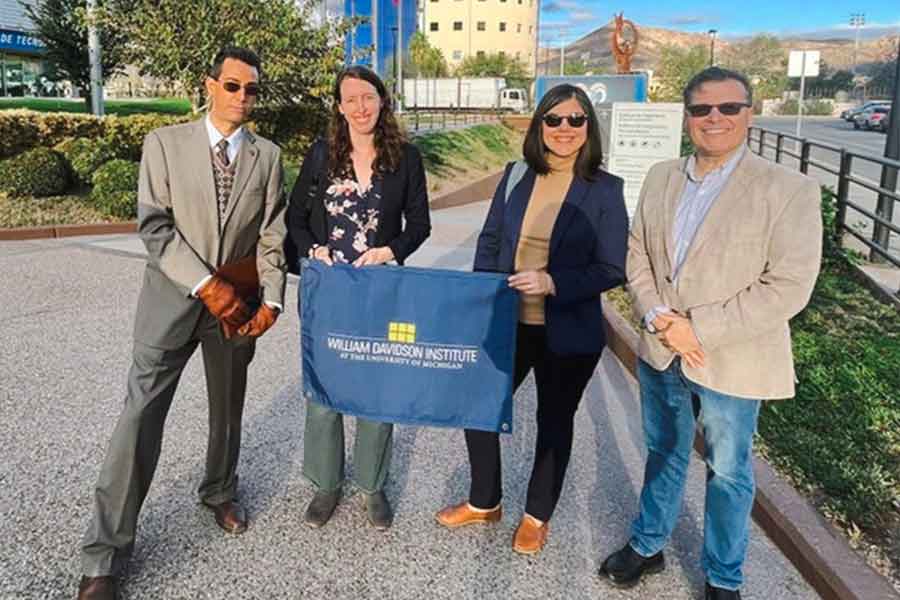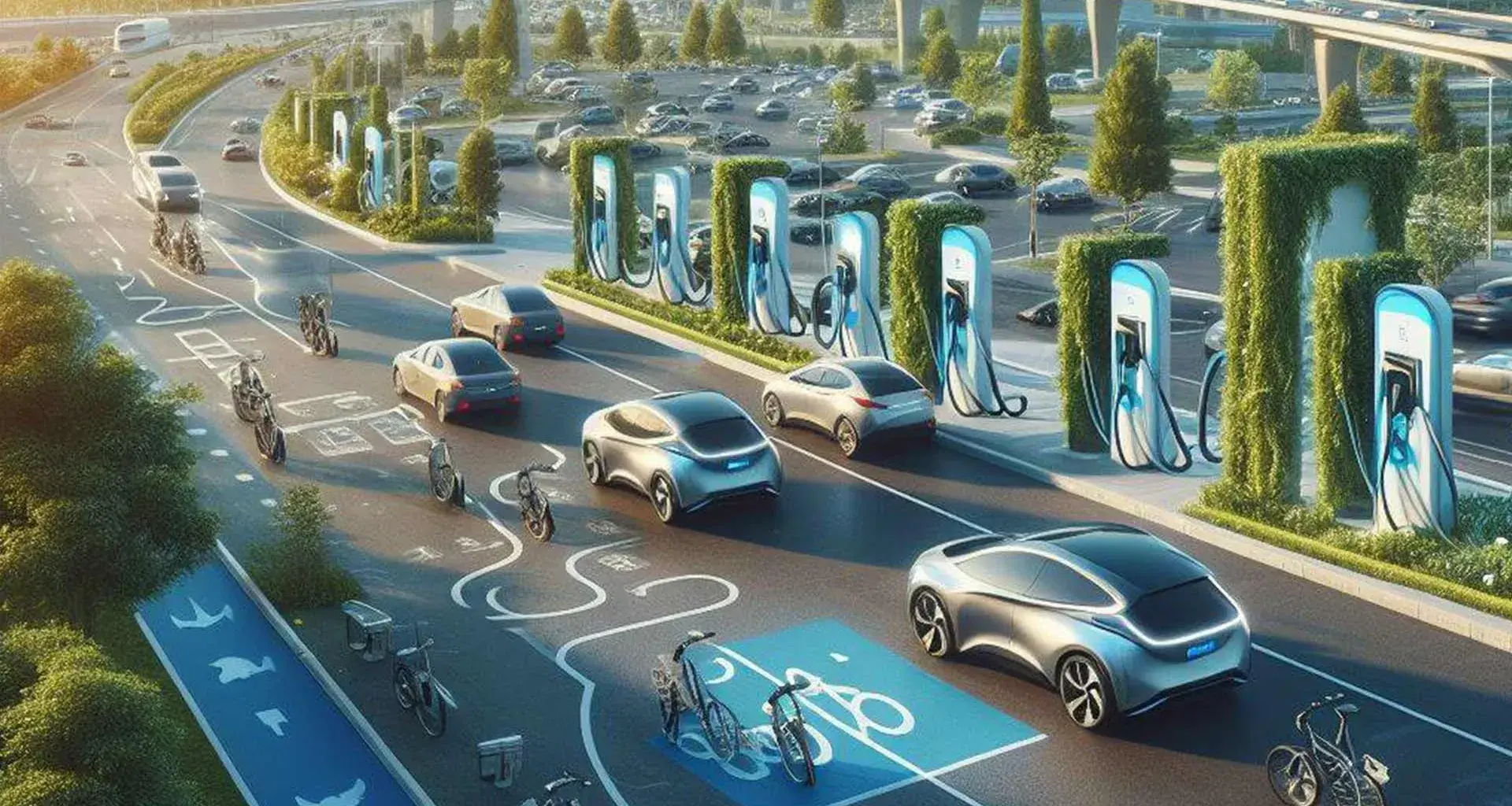Oscar Salinas, a professor at Tec de Monterrey’s Chihuahua campus, is collaborating with the University of Michigan on a project that promotes electric mobility and the reduction of pollution from internal combustion vehicles.
He aims to reduce pollution from combustion engines by focusing on adopting electric motors and making them more accessible to the public.
Salinas, who studied Mechanical and Electrical Engineering at Tec de Monterrey, is involved in the project based at the William Davidson Institute of the University of Michigan.
“Our primary motivation is to address the problem of pollution produced by internal combustion vehicles,” said Oscar Salinas.
Salinas’ interest in sustainability has led him and his team to research solutions in the field of electric mobility.

Global Collaboration for a Global Impact
The project is the result of an initiative based at the University of Michigan, specifically the William Davidson Institute, which aims to prepare the institution for global changes.
“This project is a collaborative effort between the University of Michigan and the state of Chihuahua in Mexico.”
Launched in 2022, the project directly involves about 30 people at the University of Michigan and works with strategic partners both locally and internationally.
Salinas and seven other Tec professors and researchers are collaborating on the project in the state of Chihuahua, Mexico.
“Our primary motivation is to address the problem of pollution produced by internal combustion vehicles.”
Salinas pointed out the need to address the issue of pollution produced by internal combustion vehicles and shared his opinion on the urgency of eliminating polluting vehicles as soon as possible.
Boosting Electric Mobility: Global Collaboration for a Sustainable Future
His participation in the project involves working on the development and adoption of electric vehicles, as well as collaborating with government agencies to promote the transition.
This global collaboration has allowed the project to benefit from the experience and resources of both institutions, as well as the wealth of knowledge and perspectives that collaborators from different parts of the world are able to share.
Salinas highlighted the importance of adjusting technological solutions to local realities by considering the infrastructure, natural resources, and socioeconomic needs of particular regions.
His vision is to create efficient electric motors that can compete with internal combustion engines in terms of performance and cost, without compromising the environment.

Heading Towards Gradual and Equitable Change
As the team recognizes the challenges that may arise on the path to widespread adoption of electric vehicles, it is working to develop strategies that facilitate the transition in a sustainable and equitable way.
This includes the development of accessible technologies and the implementation of policies and programs to encourage the adoption of electric vehicles across all sectors of society.
“Our focus is on ensuring a gradual transition towards electric vehicles, thereby minimizing the socio-economic impact.”
During the first stage, participants engaged in training and refresher sessions to address a variety of important societal and environmental topics.
In the second stage of the project, participants are expected to specify concrete actions and objectives for their institutions, thereby contributing to achieving the program’s goals.
“Our focus is on ensuring a gradual transition towards electric vehicles, thereby minimizing the socio-economic impact.”
A Technological Approach to a Sustainable Future
The project also focuses on technological innovations adapted to different local contexts.
“We suggest using hydrogen as an alternative in regions such as Mexico, which have sufficient natural resources.”
These initiatives aim to contribute to the fundamental role of electric vehicles in saving the environment and reducing greenhouse gas emissions.
The benefits of the project are many and will affect both individuals and participating institutions.
“The global transition towards electric mobility represents a historical milestone in comparison with past technological revolutions, such as steam engines or internal combustion engines.”

Message for Students
The Chihuahua campus professor highlighted the job opportunities available to engineers in the field of electric mobility, highlighting the importance of a solid academic education and ethical values
“We’re experiencing a social awakening distinguished by an ecological awareness that’s spreading and which favors a healthy revisionist spirit.”
YOU MIGHT ALSO WANT TO READ:





